What happens when a group WASP PhD students and postdocs within AI and cybersecurity step into one of Southeast Asia’s most dynamic innovation hubs? A week of discovery, dialogue, and cross-cultural collaboration.
In late August 2025, PhD students and postdocs from WASP travelled to Hanoi, Vietnam, for a study trip that blended industry visits, academic exchange, and participation in ACM ASIACCS 2025, one of the world’s premier cybersecurity conferences. Over six days, the group explored Vietnam’s fast-growing tech landscape, built bridges with local research communities, and showcased Swedish research excellence on the global stage.
“This trip to Hanoi was incredibly enriching,” says Mojtaba Moazen, WASP PhD student at KTH who organized the trip. “Not only did we gain valuable insights into Vietnam’s tech industry and fresh perspectives on our own research, but we also strengthened our connections as a WASP community.”
Day 1: Industry meets academia at AgileTech
The journey began with a visit to AgileTech, a Vietnamese software company specializing in areas such as DevSecOps, game development, and software security. After a warm welcome from the company’s leadership, WASP members presented the goals and scope of the Swedish research program, highlighting cutting-edge projects in AI and autonomous systems.
Each participant introduced their individual research focus, sparking discussions on potential synergies between academic innovation and industrial needs. The visit concluded with a panel discussion on Vietnam’s current tech landscape and opportunities for collaboration.
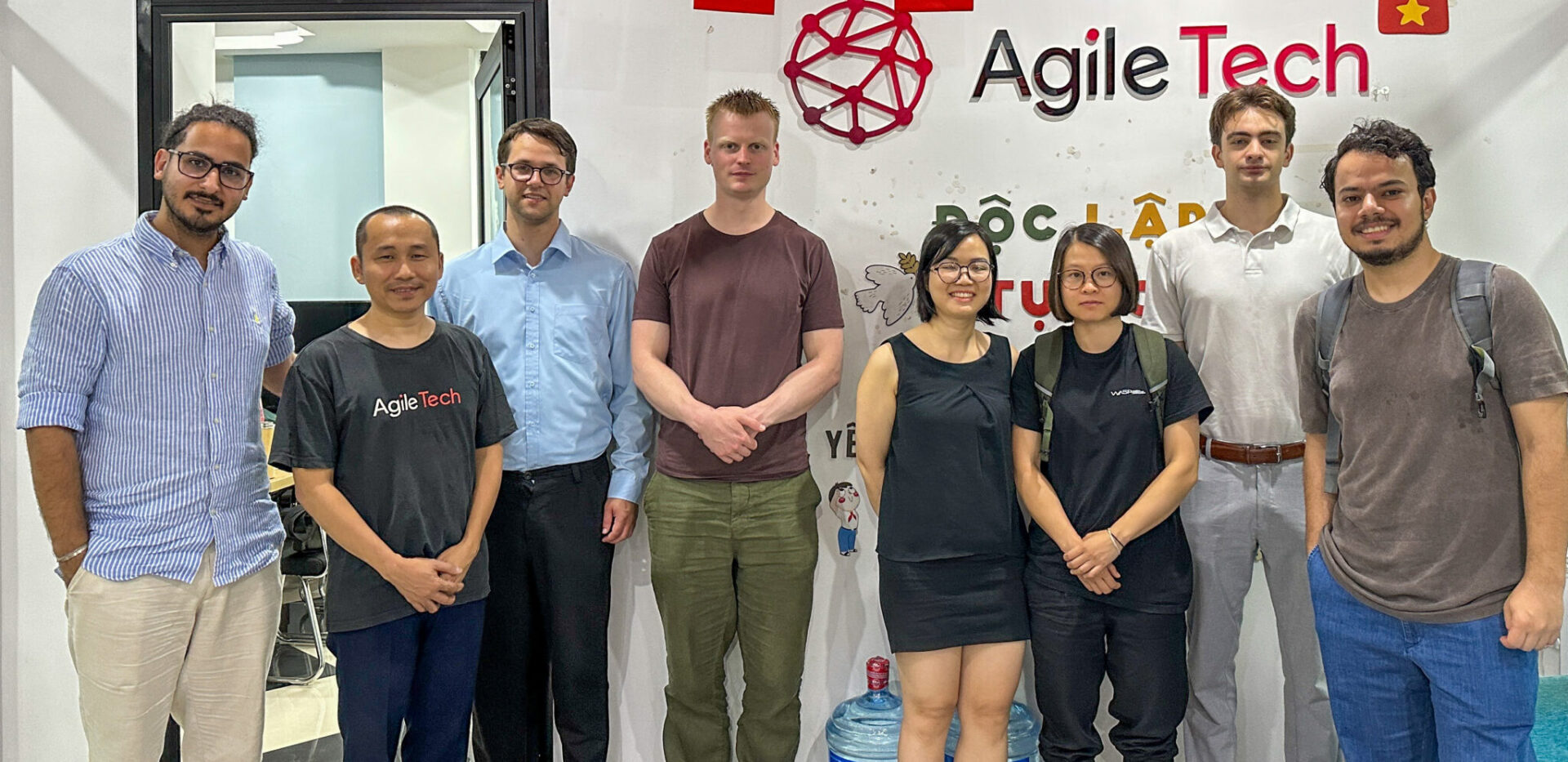
From left: Firooz Shahriari (PhD), Thang Nguyen (Founder of Agiletech), Piero Romare (PhD), Erik Mårtensson (Postdoc), Vu Tra My (Business development Manager of Agiletech), Maggie Tran (PhD), Antonio Napoli (PhD), Mojtaba Moazen (PhD).
Day 2: Academic networking and exchange
The second day featured a half-day networking session hosted by Prof. Huynh Thi Thanh Binh (HUST) and Prof. Lam Thu BUI (ACT). Vietnamese researchers presented their work across various domains, followed by WASP members sharing insights into Swedish research initiatives.
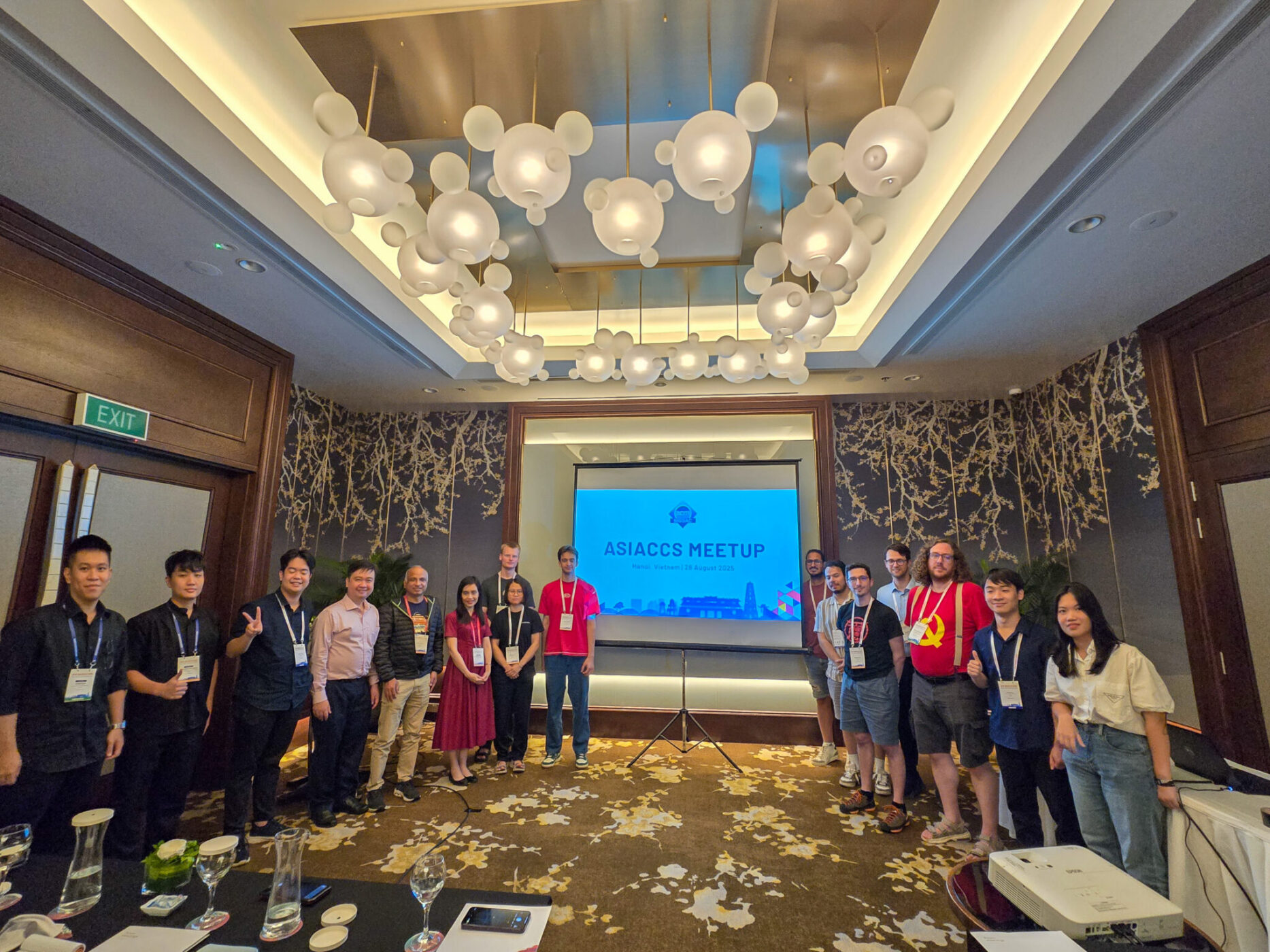
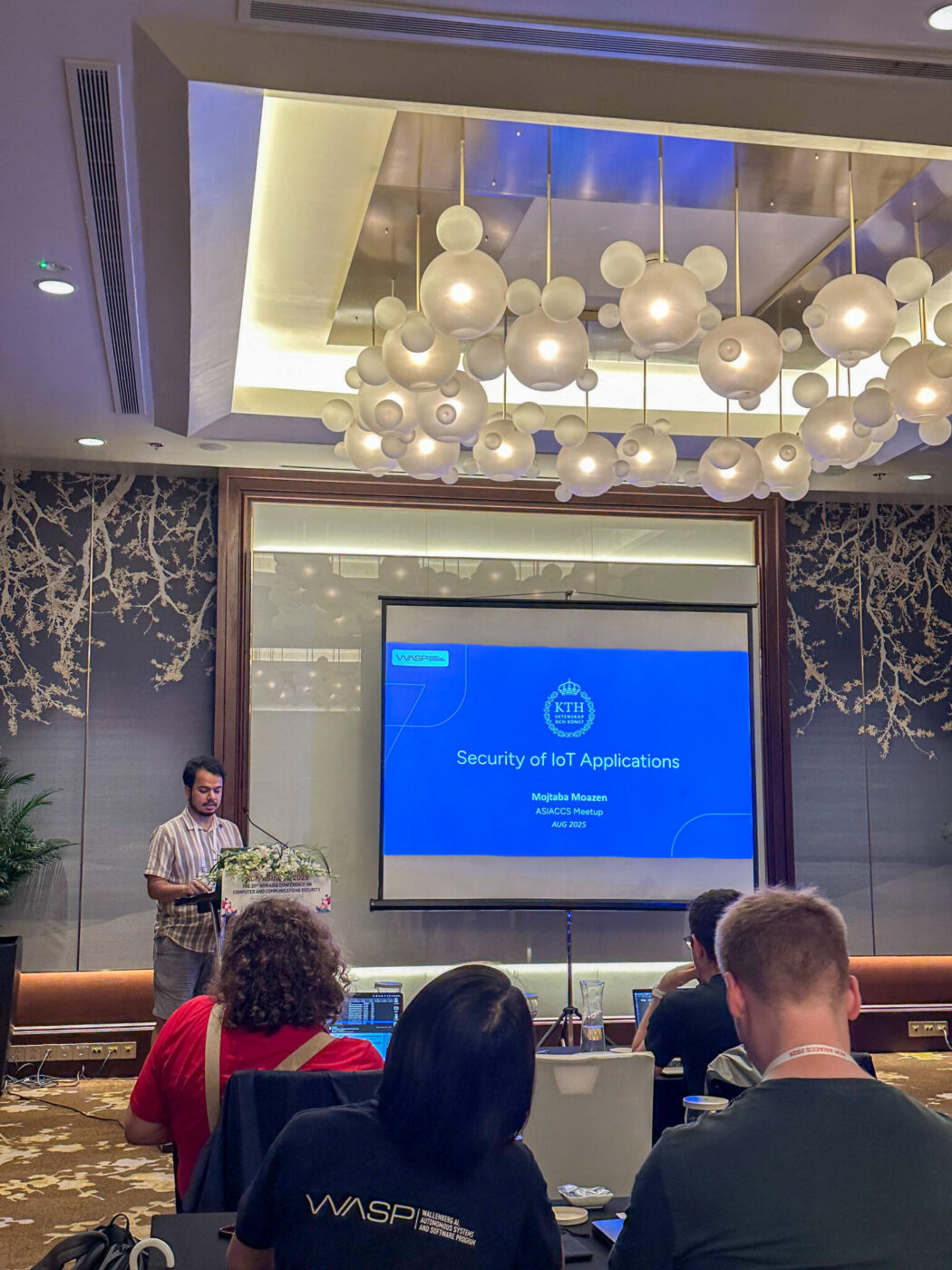
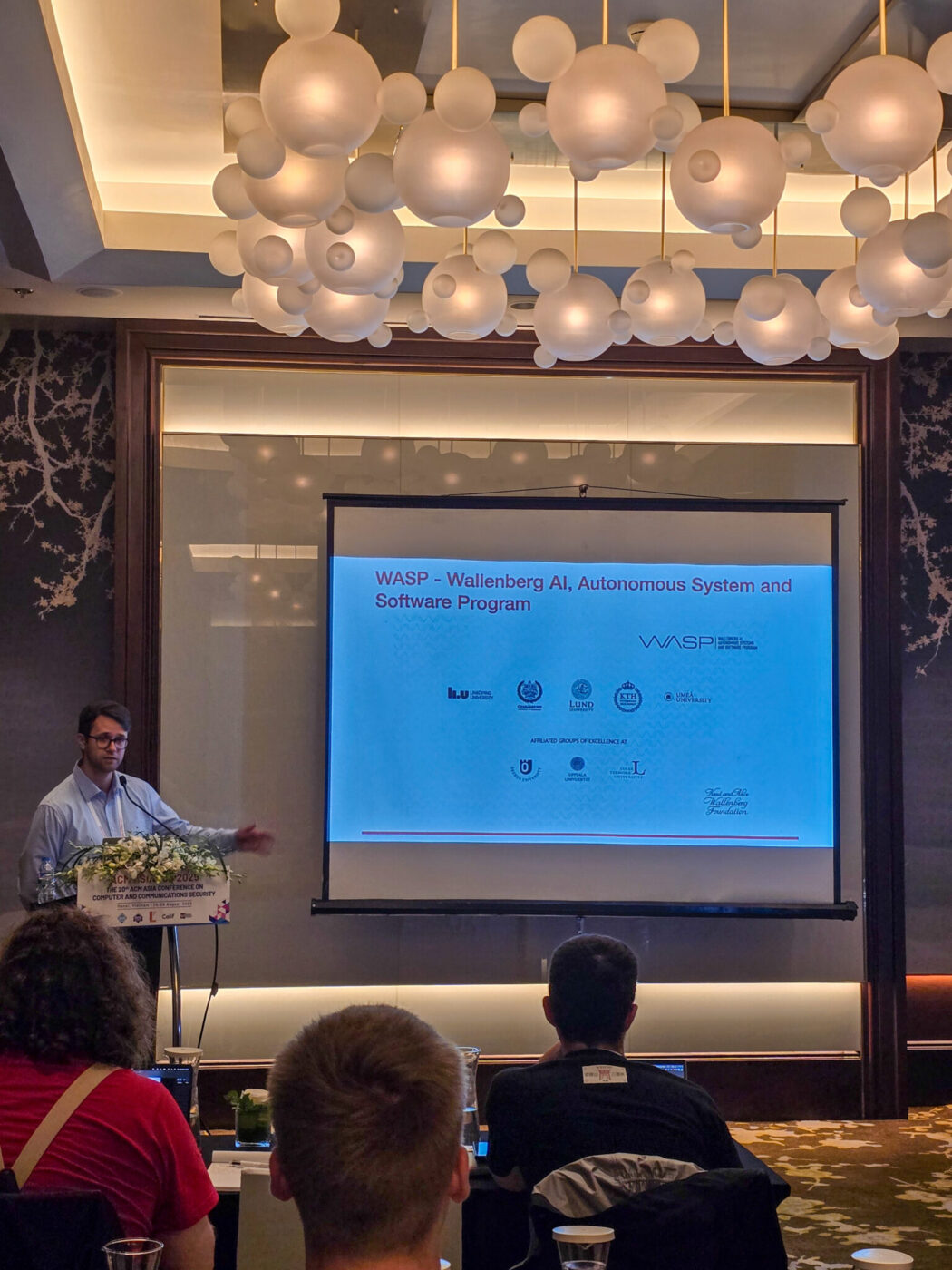
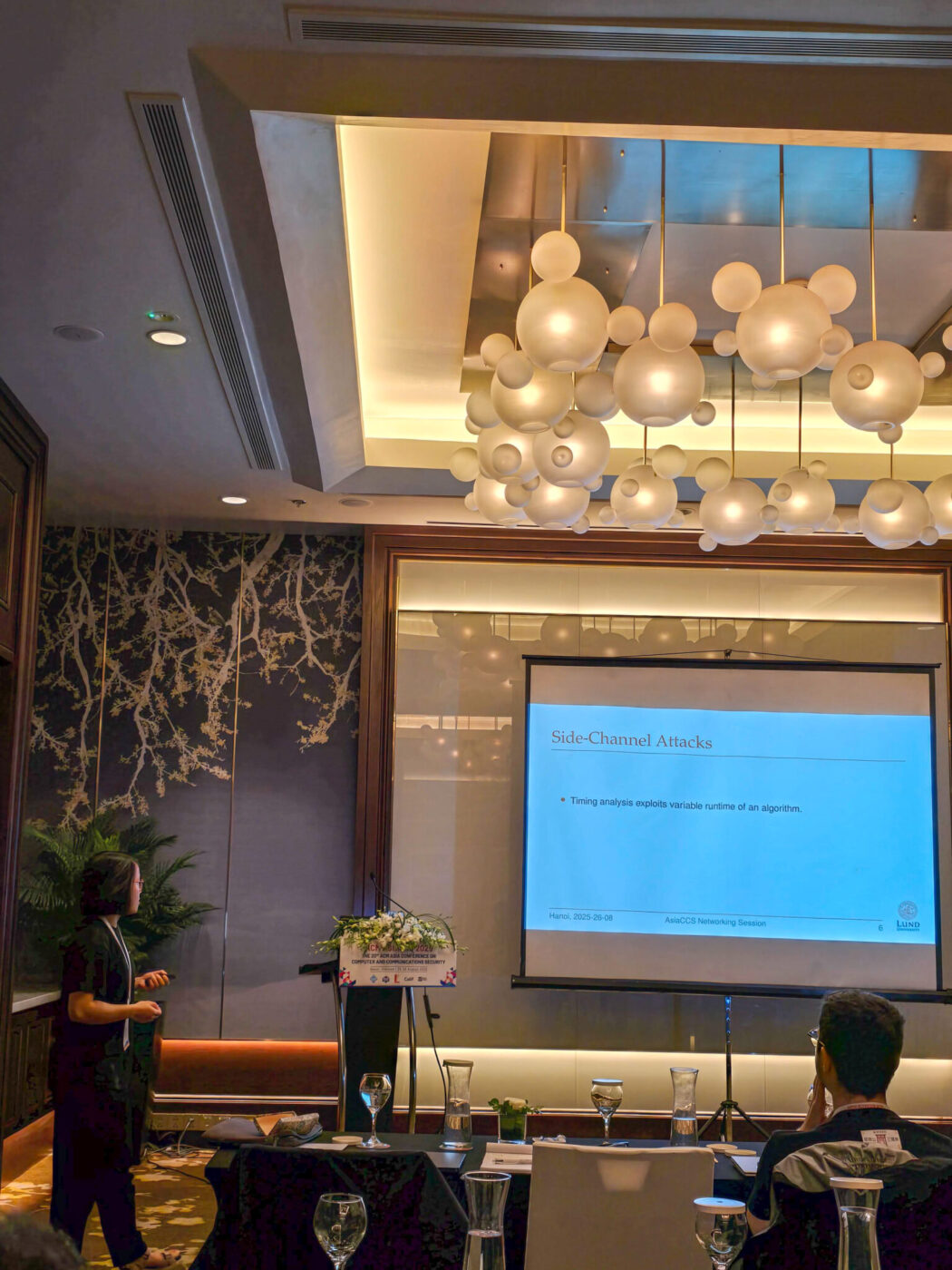
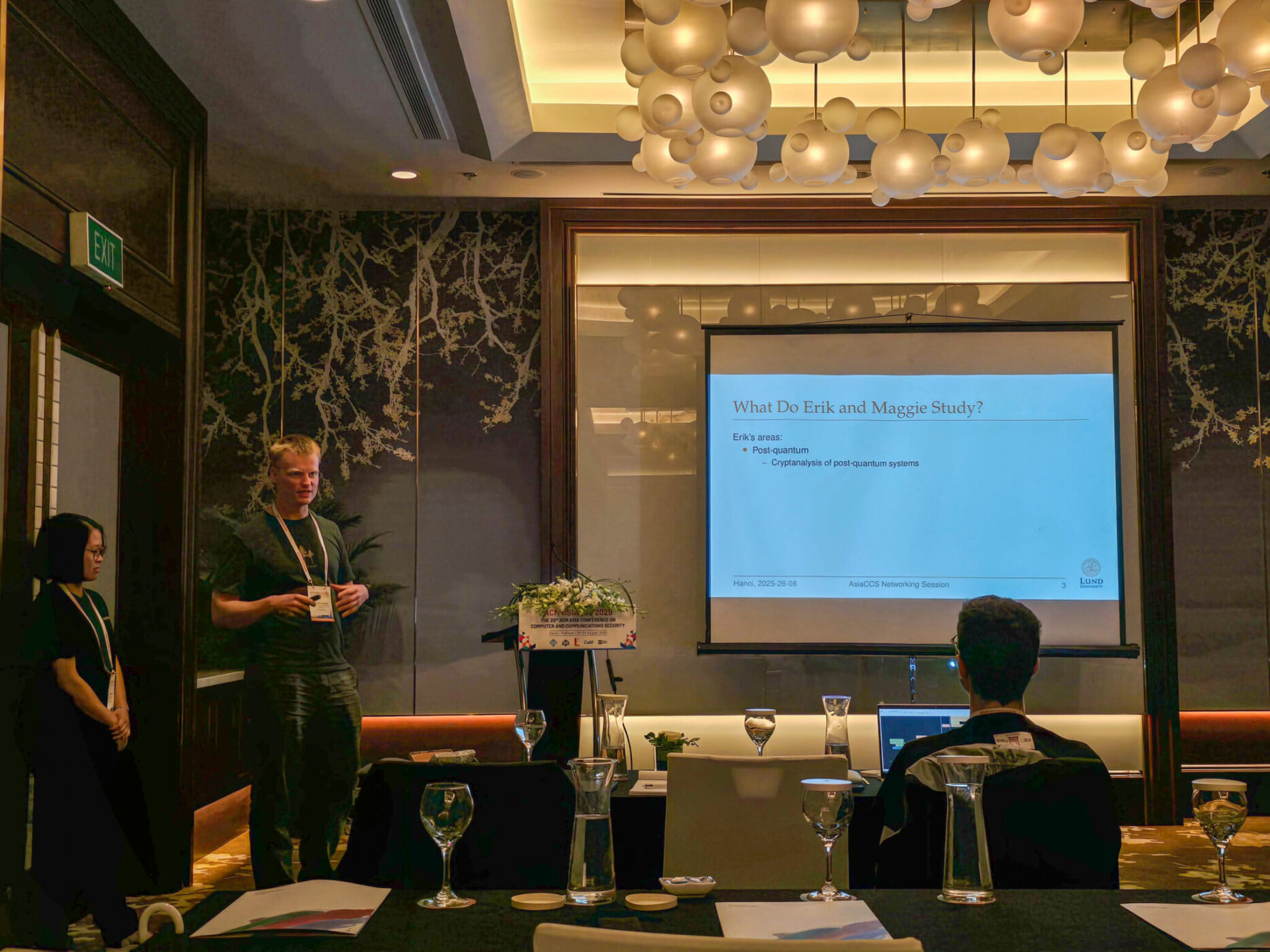
Networking Session with Vietnamese research groups at Hanoi University of Science and Technology aims to introduce the WASP activities and exchange the research ideas with researchers from Vietnam.
Days 3–5: ACM ASIACCS 2025
The final days were dedicated to ACM ASIACCS 2025, one of the leading cybersecurity conferences in the world. WASP members attended paper presentations and workshops tailored to their research interests, ranging from machine learning security to web security.
A standout moment was the six-hour poster session, which enabled deep engagement with global experts and peers. These interactions provided valuable feedback and inspiration for future publications and research directions.
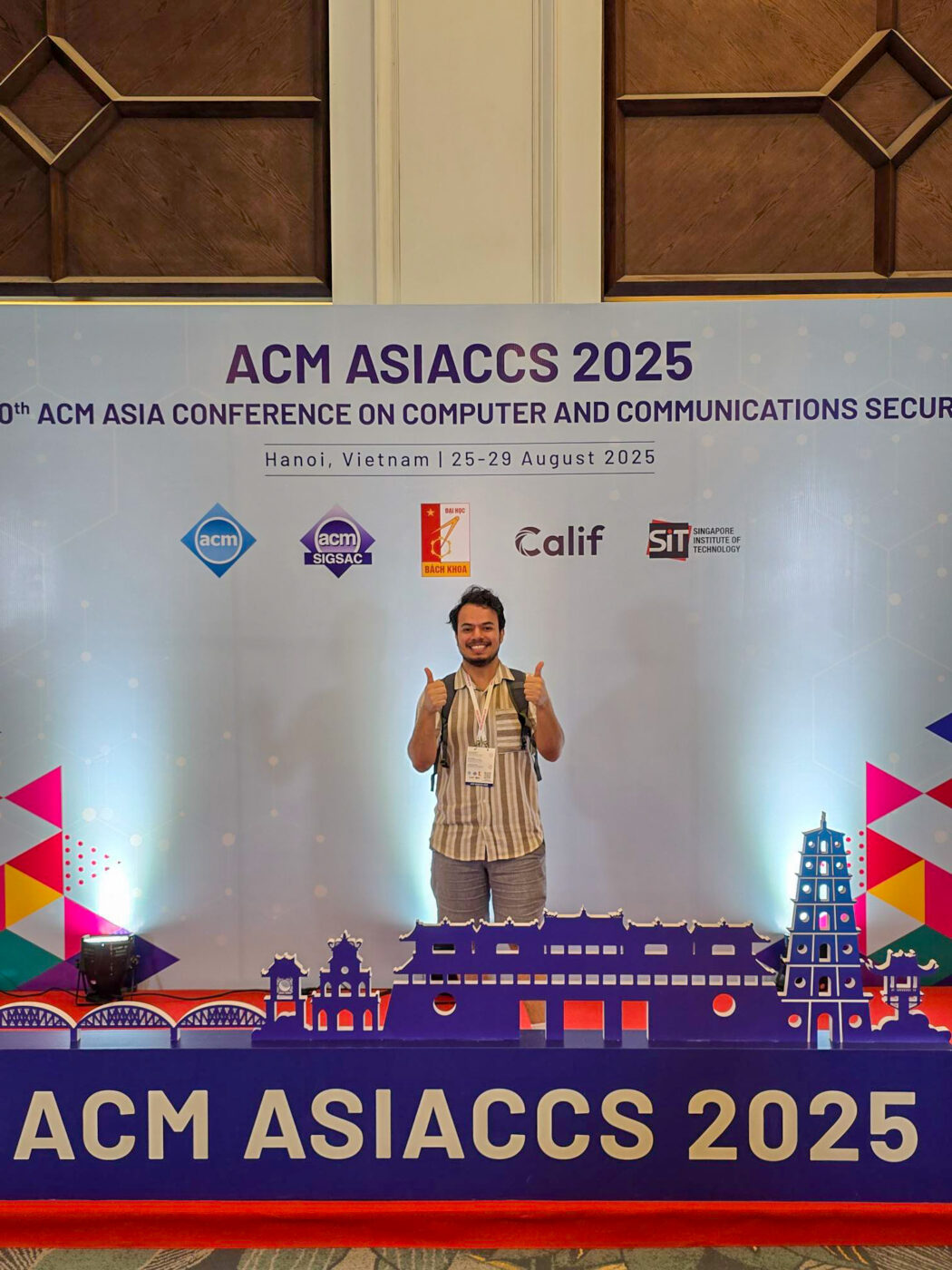
ACM ASIACCS.
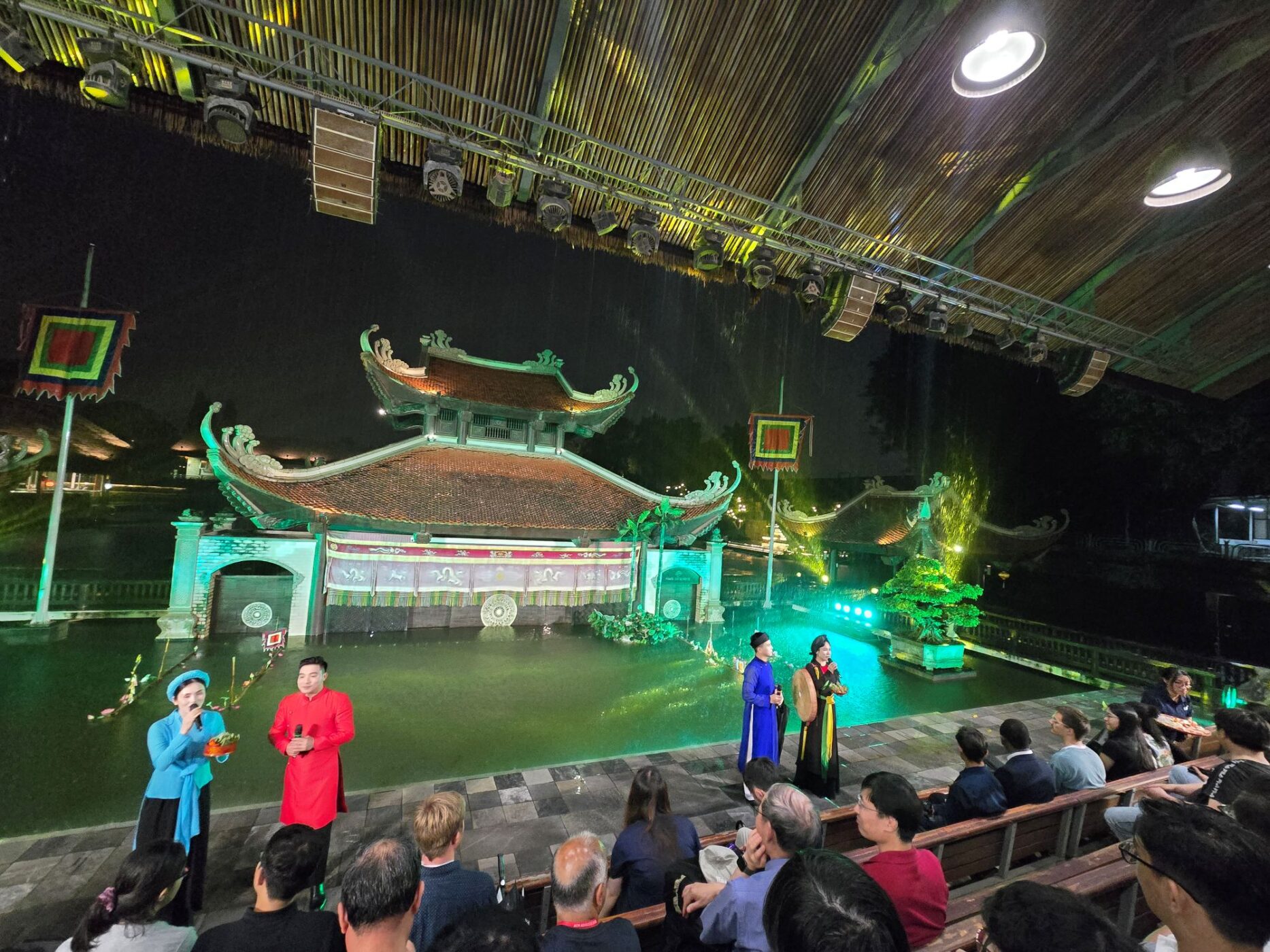
ACM ASIACCS 2025 welcoming reception.
Expanding WASP’s global footprint
As WASP continues to expand its global footprint, initiatives like this study trip exemplify the program’s commitment to international collaboration, excellence in research, and the development of future leaders in science and technology.
“The exchange of ideas with local researchers created new collaboration possibilities and inspired us to think beyond borders,” says Mojtaba.
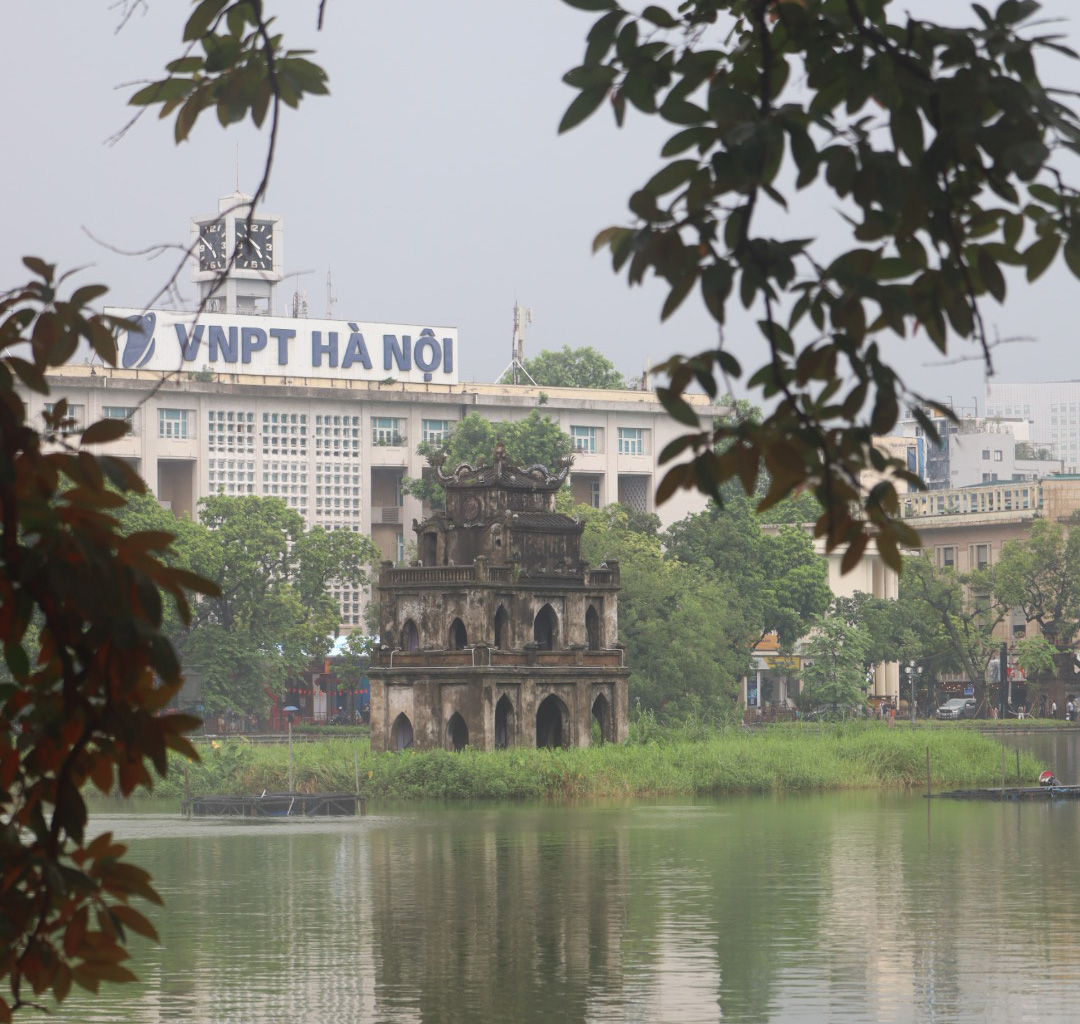
Study trips at WASP
Published: October 10th, 2025
[addtoany]

